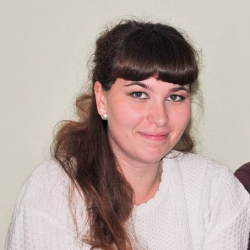|
1.
2.
3.
4.
5.
6.
| Основной этап Задача 1: организовать чтение текста полным пониманием прочитанного. Постановка задания, стимулирование потребности и интереса, установка на чтение текста. Ц.: Выполнение предтекстовых упражнений, снятие лексических трудностей П: ответы на вопросы; работа со словарем Р: T – Pls
Установка на прогнозирование учениками содержания текста. П: прогнозирование Р: T – Pl
Чтение текста про себя с целью получения информации и полного понимания прочитанного П: чтение про себя
Проверка понимания прочитанного (проверка понимания общей информации) П: ответы на вопросы Р: T – P1 – P2
Проверка понимания деталей текста, поиск и определение смысловых единиц информации П: ответы на вопросы Р: T – P1 – P2
Интерпретация текста, выражение собственного мнения по содержанию прочитанного П: выражение собственного мнения Р: P1 – P2 – P3 |
|
- Today we will read the text about the development of economic thought throughout history. But before we read it answer the following questions: Do you have any idea where the world economics comes from? Do you know the names of any famous economists from the past or anything about their ideas? And now let’s look at some of the words that you will find in the text and translate them: abundance – изобилие concept – понятие consumer – потребитель firm – фирма Industrial Revolution – промышленный переворот population – население precious metals – благородный металл production process – процесс обработки profit – прибыль raw materials – сырье satisfaction – удовлетворение scarcity – недостаток Open your copy-books and write them down.
And now look at the title of the text. What exactly are we going to read about?
Ok. And now read the text to yourself and try to achieve complete understanding.
Good. Now let’s check your general understanding of the text. Read the following statements and say if they are true or false: Aristotle did not use the word ‘economics’ but he did write about economic ideas. Early economists thought that a nation without gold was poor. People in medieval times didn’t understand anything about economics. In classical economics, the value of something was measured in gold. Economists later found a problem with the classical model. In neoclassical economics, supply and demand control price.
Well done. And now we’ll check your understanding of specific information. Please, answer my questions: What does the Greek word ‘oikonomikos’ mean? When did the English word ‘economics’ first appear? What was the economic thought about the wealth of a country until the medieval times? What new social class appeared during the medieval times? When was modern economics born? Who is often called the Father of Economics? What does the value of goods depend on for classical economists? What makes the economy work in neoclassical economics?
- Thank you for your answers. And now tell me, please, which model of economics is better, in your opinion?
|
P1: Probably it comes from Ancient Greece. P2: Aristotle, Adam Smith…
P1: We are going to read about the main periods of the development of economic thought. P2: The text is about the development of economic thought throughout history.
P1: True P2: True P3: False P4: False P5: True P6: True
P1: It means ‘family, household and usage’. P2: In the 19th century. P3: Gold makes a country wealthy. P4: The class of merchants. P5: In the 19th century. P6: Adam Smith. P7: On the cost of production. P8: Supply and demand.
P1: I think the classical model is better because… P2: For me, the neoslassical economics is better… |
Children write down the new words.
The pupils read the text to themselves.
|


























